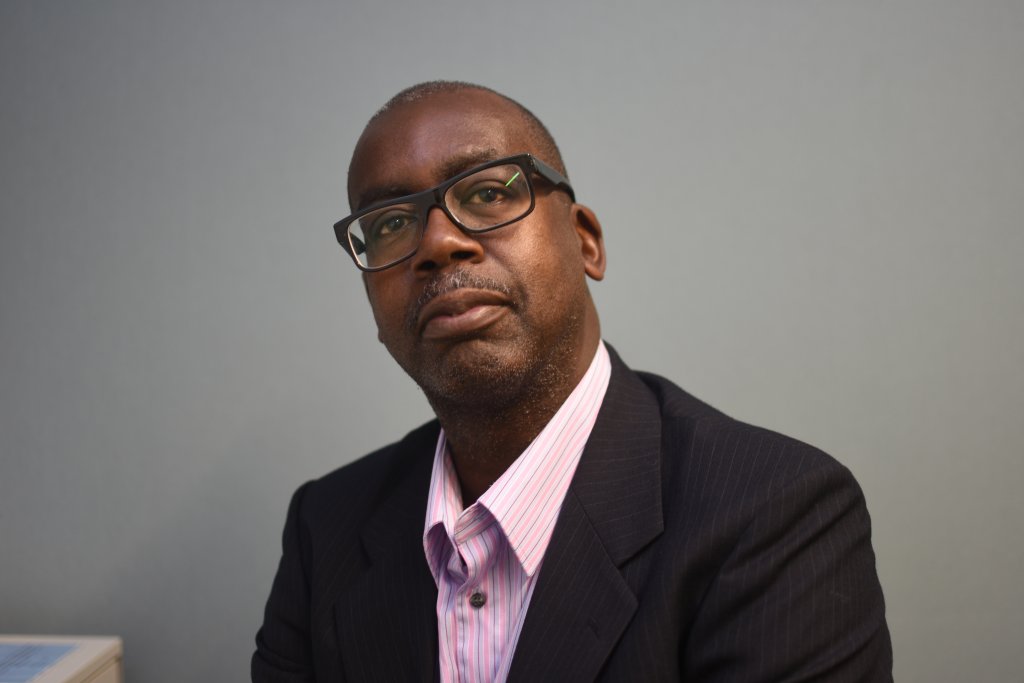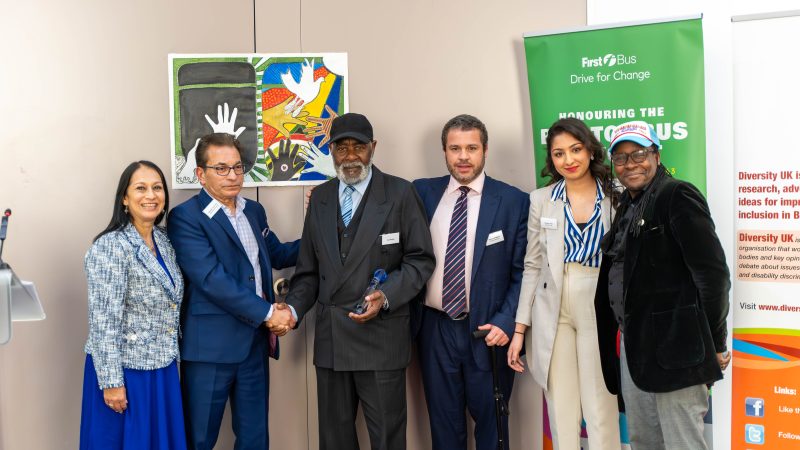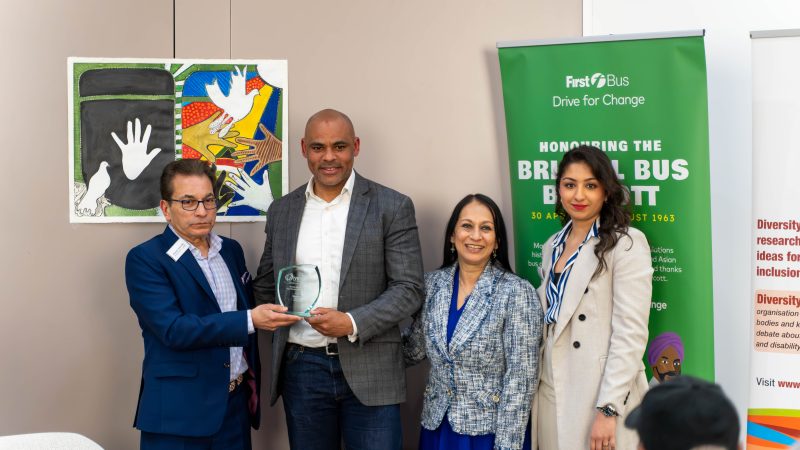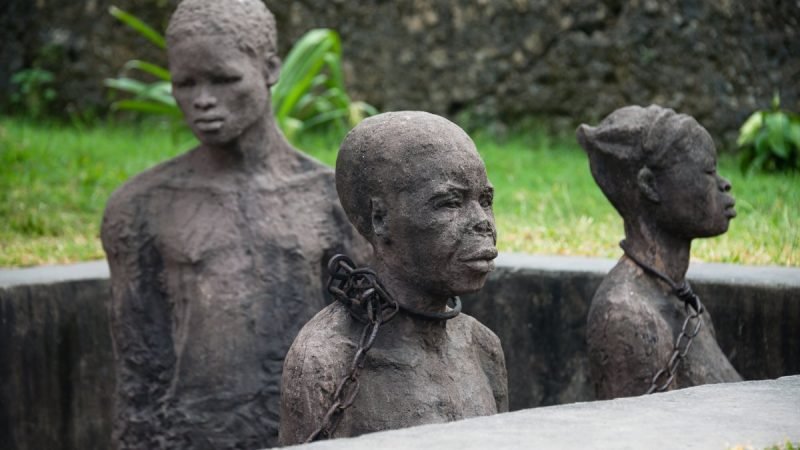Campaigner Patrick Vernon gives the Paul Stephenson Lecture 2020

Campaigner and cultural historian, Patrick Vernon OBE gave the Diversity UK Paul Stephenson Lecture on 25th November 2020 via a live Cisco Webex event. The Diversity UK Paul Stephenson Lecture is named in honour of the social worker, Dr Paul Stephenson OBE, who, in 1963, led the boycott of the Bristol Omnibus Company for discrimination that eventually paved the way for the Race Relations Act of 1965.
Does race equality matter?
The year 2020 has been marred by tragic events such the death of George Floyd in the USA and the impact of COVID-19 and inequalities on the BAME community in Britain and elsewhere. It has witnessed a resurgence of the Black Lives Matter (BLM) movement which in the UK has manifested in the form of revisiting the links that organisations have had to the slave trade. The BLM movement has led to calls for removing statues from the public realm; decolonising the curriculum and teaching black history in schools. There has also been focus on the treatment of the “Windrush Generation” in Britain’s recent history and the social injustice that is still faced by the UK’s ethnic minority communities.
The theme of the Paul Stephenson lecture 2020 focussed on the context for dialogue and integration between communities. What really needs to happen to our physical spaces, statues, programmes and planning to ensure a deeper commitment to building a fairer, more inclusive world where ‘Race Equality Matters’?
Patrick Vernon OBE spoke about race equality, drawing on his experiences of heritage and history. He highlighted the unequal way in which COVID-19 has impacted black, Asian and minority ethnic communities and the reincarnation of the black power movement following the murder of George Floyd in the USA. He said that a new generation of campaigners and activists have been reignited by the Black Lives Matter movement and the impact of structural and everyday racism.
He catalogued the strong body of evidence on race inequality, citing history, race equality reports, reviews, audits and commissions and suggested drawing on the experience of previous generations to define future battles. To avoid every generation having to fight the same battles fought by Paul Stephenson in the 1960s, Patrick said that anti-racism is an important element of challenging prejudices, not just among white communities, but also among black and Asian communities.
“Race equality is on the agenda today and we have to ensure that it is on the agenda tomorrow so that the next generation do not have the same burden, trauma, stress on their health and wellbeing that previous generations have suffered.”
100 Great Black Britons - “We’ve influenced and shaped Britain.”
Patrick Vernon co-authored 100 Great Black Britons with historian Angelina Osborne, and it was published in September 2020 to coincide with Black History Month, resurrecting a campaign they began 17 years ago. The project was conceived in 2003 following a BBC search for “100 Greatest Britons” which featured no Black Britons whatsoever.
Angelina and Patrick decided to launch a poll to “raise the profile of the Black contribution to Britain” and asked people to vote for and “celebrate the greatest Black Britons of all time”.
Crimean War nurse Mary Seacole topped the list.
At the time, Patrick said: “Black history hasn’t been recognised.
“We didn’t come here at Windrush in 1948 – we’ve been here for a thousand years.
“We’ve influenced and shaped Britain.”
Click here to read more about 100 Great Black Britons.
About the Diversity UK Paul Stephenson lecture
Diversity UK inaugurated the first Paul Stephenson lecture, given by Helen Grant MP, in November 2016 at the Speaker’s House, House of Commons, in London. Helen spoke about race and diversity in a post-Brexit Britain. Paul spoke about his own upbringing and the boycott of the Bristol Omnibus Company that he led in 1963, protesting against its refusal to employ Black or Asian drivers or conductors. After a 60-day boycott supported by thousands of Bristolians, the company revoked its colour bar in August of that year. Although now in frail health, Paul took the time to sign copies of his ‘Memoirs of a Black Englishman’ for the 100 attendees.
In 2017, the Paul Stephenson Lecture was given by two diversity pioneers; Lord Simon Woolley, who spoke about his work on race equality and inclusion at Operation Black Vote (OBV) and Wilfred Emmanuel-Jones, who talked about his career and championship of inclusive entrepreneurship, particularly in rural communities. The year 2018 marked 100 years since women got the right to vote in parliamentary elections in the UK and the lecture was given by two women pioneers; Tangy Morgan, a Senior Advisor to the Bank of England Prudential Regulation Authority (PRA) and Elaine Sihera, writer, sociologist, Cambridge postgraduate, Open University doctor and a leading achiever in the British Black community. The 2019 lecture, which noted the 50th anniversary of the Apollo 11 moon landings, was given by cybersecurity entrepreneur and education philanthropist Tom Ilube CBE who spoke about ‘Shooting for the Moon’ and raising aspirations among the young.
About Dr Paul Stephenson OBE
Dr Paul Stephenson OBE, is a community worker, activist and long-time campaigner for civil rights for the British African-Caribbean community in Bristol, England. As a young social worker, in 1963 Stephenson led a boycott of the Bristol Omnibus Company, protesting against its refusal to employ Black or Asian drivers or conductors. After a 60-day boycott supported by thousands of Bristolians, the company revoked its colour bar in August.
In 1964 Stephenson achieved national fame when he refused to leave a public house until he was served, resulting in a trial on a charge of failing to leave a licensed premises. His campaigns were instrumental in paving the way for the first Race Relations Act, in 1965. Paul Stephenson is a Freeman of the City of Bristol and was awarded an OBE in 2009. In July 2014, Mr Stephenson was awarded an honorary degree (Doctor of Law) by the University of Bristol "for his dedication to fighting for equality and civil rights across Bristol and around the world for over 60 years". In November 2016, he was presented with the Diversity UK Lifetime Achievement Award and has its annual lecture named in his honour.
About Dr Patrick Vernon OBE
Patrick Vernon OBE is social commentator, campaigner and cultural historian. He has over twenty years’ senior management experience working across mental health, public health, heritage and race equality. In 2010 he launched the campaign for a national Windrush Day and in 2018 he kick started the campaign for an amnesty for the Windrush Generation. For the last 10 years he has also been campaigning for a national Windrush Day on 22 June to celebrate the contribution of the Windrush Generation and rise of multicultural Britain since WW2. Patrick is the founder of Every Generation Media which is a social enterprise promoting and developing products and information on Black History. He created the 100 Great Black Britons Campaign in 2003 during which Mary Seacole was voted Great Black Briton. In September 2020 he was co-author of the best-selling book 100 Great Black Britons.
Patrick is currently Associate Director for Connected Communities at the Centre for Ageing Better, Equality and Diversity Adviser to Lambeth Council and Harrow Council, Chair of Citizens Partnership for Healthcare Investigation Branch (HSIB) and Senior Associate at OLMEC. Patrick is a Patron of ACCI a long established black mental health charity in Wolverhampton and Patron of Santé a social enterprise in Camden which supports and befriends refugees and asylum seekers across London. Patrick is Vice Chair of the Bernie Grant Trust and a board member of 38 Degrees.
He received an OBE in 2012 for his work in race equality and health and was awarded an honorary PhD by Wolverhampton University in 2018 for his campaigning and writing on culture, history and migration.




